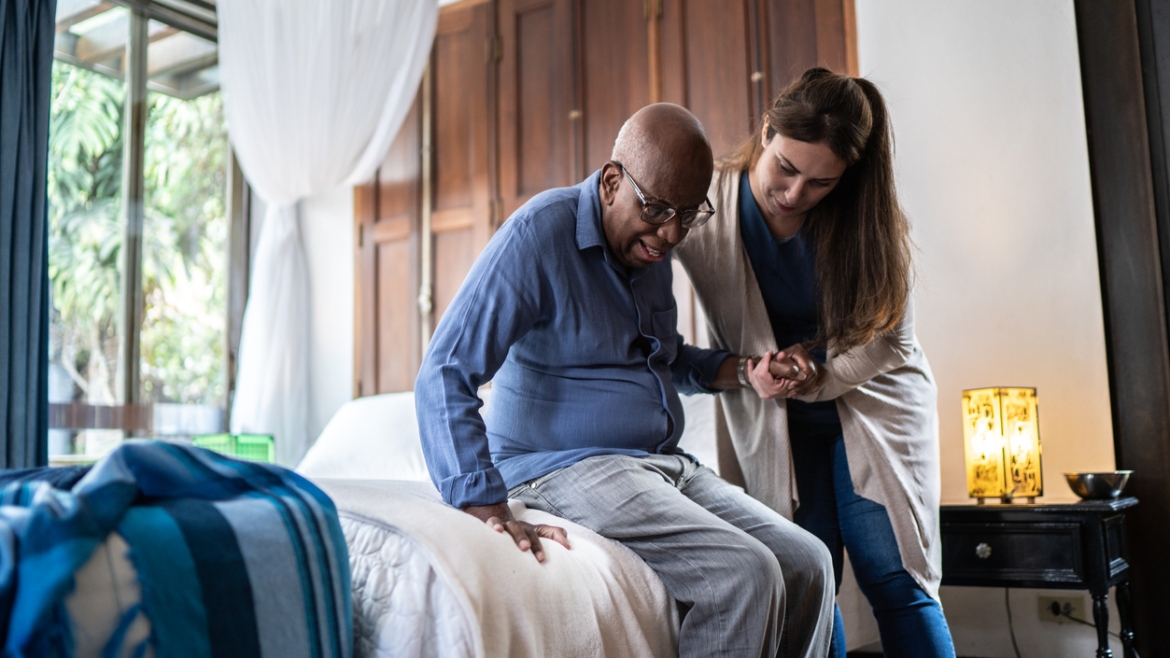Did you know that Leading Edge Senior Care has a Dementia Support Group? We meet monthly in Mesa. For more details <click here>
When A Loved One Is Discharged From The Hospital
The transition period following a loved one’s hospital discharge marks a critical phase in their journey toward recovery. This article aims to provide emotional support and detailed guidance for families navigating this pivotal moment. When A Loved One Is Discharged From The Hospital
The Significance of Post-Hospital Discharge:
When a loved one is discharged from the hospital, the journey toward recovery continues. This phase often involves adapting to new routines, managing medications, and ensuring adequate care. Understanding the significance of this transition sets the stage for a smoother recovery process.
Emotional Support During the Transition:
The discharge process can evoke mixed emotions – relief, anxiety, or even fear. Being empathetic and supportive during this time is crucial. Offering reassurance and understanding can alleviate concerns and foster a sense of comfort for the recovering individual.
Understanding Post-Discharge Instructions:
Post-hospital discharge instructions are essential guidelines for continued care. Understanding these instructions, including medication schedules, follow-up appointments, and rehabilitation plans, is crucial. This comprehension ensures a seamless continuation of the care plan post-discharge.
Adapting the Home Environment:
Preparing the home environment for the returning loved one is pivotal. Ensuring accessibility, comfort, and safety by organizing necessary supplies, modifying living spaces if needed, and arranging support aids in facilitating a smoother transition.
Ensuring Medication Adherence:
Medication management post-discharge is critical for recovery. Setting up a medication schedule, organizing pillboxes, and understanding dosage instructions are vital. This meticulous approach ensures the timely administration of medications.
Encouraging a Support System:
Engaging family, friends, or hired caregivers can create a support network for the recovering individual. Sharing responsibilities and seeking assistance when needed eases the burden on primary caregivers and ensure comprehensive care.
Monitoring Recovery Progress:
Vigilantly monitoring the recovering individual’s progress post-discharge is essential. Observing any changes in health, noting symptoms, and communicating concerns to healthcare professionals enable timely interventions if necessary.
Regular Follow-up Appointments:
Adhering to follow-up appointments with healthcare providers is crucial for evaluating recovery progress. These appointments allow healthcare professionals to monitor recovery, address concerns, and adjust the care plan as needed.
Emotional Well-being After Discharge:
The emotional well-being of the recovering individual is as vital as physical recovery. Encouraging hobbies, social interactions, and engaging activities aids in boosting morale and accelerating the recovery process.
Caregiver Self-Care:
Amidst supporting a loved one post-discharge, caregivers must prioritize self-care. Balancing caregiving responsibilities with personal well-being is essential to prevent burnout and maintain the ability to offer optimal care.
Seeking Additional Support:
Seeking additional assistance or resources, such as support groups, respite care, or home healthcare services, can alleviate caregiver stress and provide supplemental care when necessary.
Conclusion:
The period following a loved one’s hospital discharge necessitates careful navigation and support. Embracing the emotional challenges, understanding post-discharge instructions, adapting to the home environment, and monitoring recovery are integral aspects of this transitional phase. By fostering a supportive environment and ensuring comprehensive care, families can facilitate a smoother recovery journey for their loved ones after hospital discharge.

